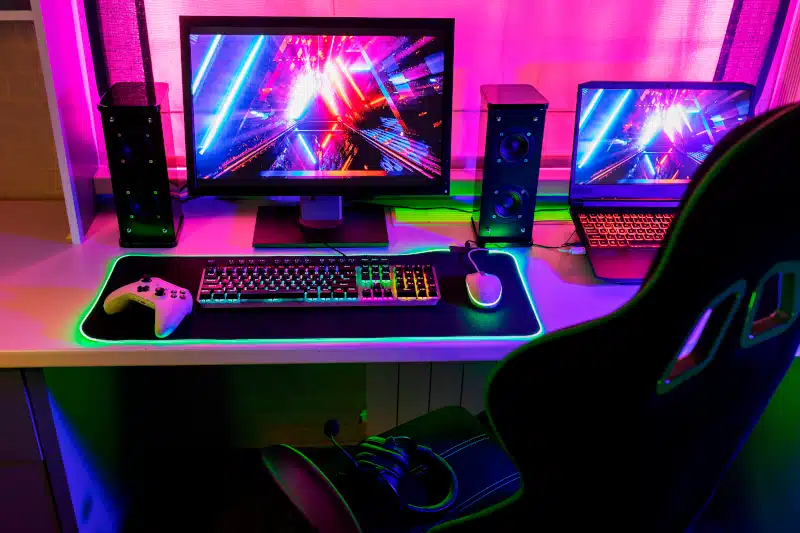Technology is crucial in our daily lives in today’s fast-paced world. From personal computers to smartphones, we rely heavily on devices that can keep up with our busy schedules. When it comes to computers, speed is one of the most crucial factors that determine their usefulness. In this article, we’ll explore the components contributing to a computer’s speed and answer the question, “What makes a computer fast?”
The Central Processing Unit (CPU) is the computer’s brain, executing instructions and performing calculations. The CPU’s clock speed, measured in gigahertz (GHz), determines how many instructions it can execute per second. A higher clock speed means a faster CPU, leading to faster overall performance. Therefore, a computer with a higher clock speed is generally considered faster.
However, clock speed is not the only factor to consider. The number of CPU cores also plays a significant role in its speed. A core is like a separate processing unit within the CPU that can handle its own set of instructions simultaneously. More cores mean more instructions can be executed simultaneously, resulting in faster processing speed. Therefore, a CPU with multiple cores is generally faster than one with a single core.
Random Access Memory (RAM) is another crucial factor that affects a computer’s speed. RAM is the temporary storage area where the computer stores data it needs to access quickly. The more RAM a computer has, the more data it can store and access quickly. This means that applications can load faster, and the computer can handle more tasks simultaneously without slowing down. Therefore, a computer with more RAM is generally faster.
Additional Factors that Make Your Computer Fast
In addition to RAM, storage also plays a significant role in a computer’s speed. There are two types of storage: Hard Disk Drives (HDD) and Solid-State Drives (SSD). HDDs use spinning disks to read and write data, while SSDs use memory chips. SSDs are generally faster than HDDs as they have no moving parts and can quickly access data. Therefore, a computer with an SSD is usually faster than an HDD. Furthermore, the storage speed also affects how fast the computer can boot up and load applications.
The Graphics Processing Unit (GPU) renders graphics and images on the screen. Modern GPUs can perform complex calculations and are used in applications like video editing, gaming, and machine learning. Therefore, a computer with a powerful GPU is generally faster in graphics-intensive tasks.
Finally, the software also significantly affects a computer’s speed. Optimized software can better use the hardware, resulting in faster performance. On the other hand, poorly optimized software can bog down even the most powerful hardware. Therefore, it’s essential to keep your software up to date and use optimized applications for your hardware.
In conclusion, several factors contribute to a computer’s speed, including the CPU, RAM, storage, GPU, and software. Each component plays a significant role in determining how fast a computer can perform tasks. When choosing a PC, it’s essential to consider these factors and select a configuration that suits your needs. By doing so, you can ensure that you have a fast and reliable computer that can keep up with your busy schedule.
If you’re experiencing slow computer performance, bring it to PCMechanic Computer Repair in Davenport, FL. I can help you optimize your hardware and software for maximum speed and efficiency. Don’t let a slow computer hold you back – schedule an appointment with me today!
(Disclaimer: While the generalizations made in this article hold for many real-world situations, remember that the factors contributing to a computer’s speed can vary based on specific use cases and individual user needs. Different users may have other priorities regarding computer performance, so it’s essential to consider your unique needs and use cases when selecting a computer or evaluating its performance.)


